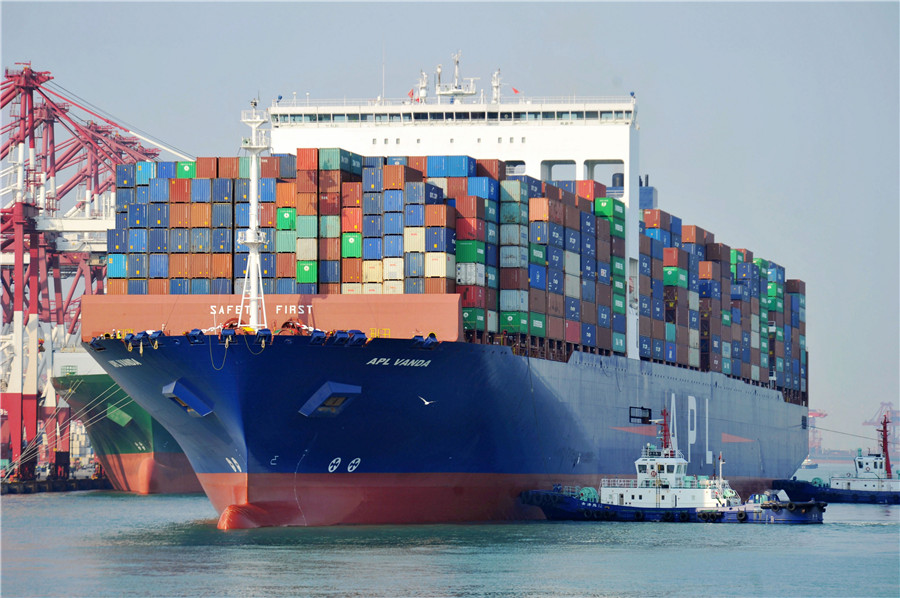
A US cargo ship docks at the Qingdao Port, Shandong province. (Photo: China Daily)
That the United States is to reinstate tariff exemptions on some Chinese products is good news for trade between the two countries and for their bilateral relations as well.
The move, which the US Trade Representative Office announced on Wednesday, applies to 352 Chinese products on which Washington first imposed levies in 2018 when the previous US administration launched a trade war against China.
In a statement, the office said, "Today’s determination was made after careful consideration of the public comments, and in consultation with other US agencies."
The exclusions are retroactive to Oct 12 of last year and extend through the end of 2022.
Rather than declining under the heavy tariffs, trade between the two countries has continued to grow during the past four years. The total value of the US trade with China was around $657 billion in 2021, with the value of imports from China being $506 billion, according to US statistics.
This speaks volumes about how deeply intertwined the two economies are. It also points to the Donald Trump administration’s misinterpretation of the unbalanced US-China trade and its unreasonableness in pointing an accusing finger at China for the US’ trade deficit with China. This move has proved that it was a miscalculation to expect that the tariffs levied would reverse the US’ trade deficit with China and make it possible for its lost manufacturing industries to return to the US.
US businesses and lawmakers of both parties have long been calling for such a move, as it is the US people and businesses that have suffered the most from the tariffs. According to a recent Moody’s report, China absorbed 7.6 percent of the tariffs "while the rest of the tab was picked up by Americans". And the trade war Washington has launched against China has also had "a modest but real impact" on inflation in the US, as Americans for Free Trade, a broad coalition of trade organizations, said in a letter sent to congressional leaders earlier this month.
Not only Chinese economists but also economists from the US have argued that it was not China that was to blame for the US trade deficit. It has long been evident that both sides have benefited from their trade. That many US transnational companies still choose to increase their investment in China despite the tariffs and bickering between Washington and Beijing suggests how important the Chinese market is for them.
It has become clear that a trade war is not in the interests of either country. Nor is the trade war between China and the US in the interests of the global economy.


